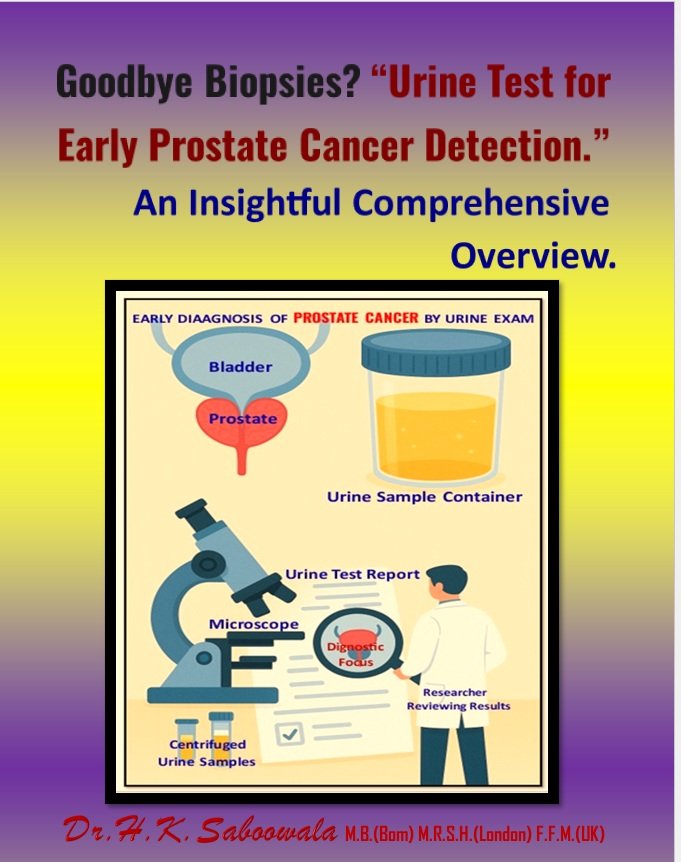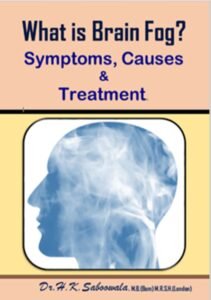For Medical Professionals, Researchers and Curious Minds.
Update – July 2025:
I ’ve added a Scribd preview of our prostate cancer eBook, improved references, and better internal links for easier navigation.
Introduction: A Revolution in Early Cancer Detection
Urine tests for early prostate cancer detection are reshaping how clinicians screen, diagnose, and monitor one of the most common cancers in men.
Urine tests for early prostate cancer detection are reshaping men’s healthcare by offering a non-invasive, highly specific, and accessible diagnostic tool.
Traditional screening methods like PSA blood tests and painful biopsies have long been associated with patient discomfort and limited accuracy.
Emerging urine-based diagnostics now offer a game-changing alternative—identifying cancer-related biomarkers even before symptoms arise.
Below are five keyways these tests are revolutionizing the field.
1. Non-Invasive and Patient-Friendly
One of the most impactful benefits of urine tests for early prostate cancer detection is their non-invasive nature. Unlike biopsies or transrectal ultrasounds, urine collection:
- Requires no needles
- Is painless
- Can even be done at home
This ease leads to better patient compliance, earlier testing, and wider accessibility—especially in low-resource settings.
2. Detecting Biomarkers Before Symptoms
Urine tests analyse biomarkers such as:
- PCA3 (Prostate Cancer Antigen 3)
- TMPRSS2-ERG gene fusion
- Various microRNAs and protein markers
These indicators often appear before PSA levels rise or imaging detects changes, enabling earlier intervention and reduced cancer progression risk.
3. Reducing Unnecessary Biopsies
Not every elevated PSA requires a biopsy. With the help of urine biomarkers, physicians can:
- Stratify patients by risk level
- Avoid invasive procedures for low-risk individuals
- Improve diagnostic accuracy and minimize complications
This makes urine tests a valuable triage tool in prostate cancer screening protocols.
4. Enhancing Population Screening
Because urine testing is scalable and affordable, it has the potential to:
- Be integrated into public health screening programs
- Allow mass screening of asymptomatic men over 50
- Improve outcomes through earlier detection across demographics
This makes urine tests for early prostate cancer detection essential in global cancer control strategies.
5. Supporting Personalized Treatment Decisions
Advanced urine-based tests can also provide insights into tumor aggressiveness, helping clinicians:
- Plan targeted therapies
- Monitor recurrence risk
- Tailor treatment to each patient’s cancer profile
This aligns with the goals of precision medicine in oncology.
Quick Facts: Why Urine Tests for Early Prostate Cancer Detection Matter
- Non-invasive: No pain, no needles—just a urine sample
- Early detection: Identifies cancer biomarkers before symptoms arise
- Reduces unnecessary biopsies: Avoids complications from false-positive PSA results
- Scalable: Ideal for population-wide screening
- Cost-effective: Minimizes the burden on healthcare systems
As the science matures, urine tests for early prostate cancer detection will likely become standard practice—replacing guesswork with precision.
Q: Are urine tests accurate for detecting prostate cancer early?
A: Yes, especially tests using biomarkers like PCA3 and TMPRSS2:ERG.
Conclusion: The Future of Men’s Cancer Care.
Urine tests for early prostate cancer detection are no longer experimental—they are clinically validated tools paving the way for smarter, safer, and more precise screening. As this diagnostic frontier evolves, fewer men may need biopsies, more lives will be saved, and cancer care will become more patient-centred than ever before.
By: Dr. H.K. Saboowala. M.B.B.S. (Bom), M.R.S.H. (London), F.F.M. (UK)
Internal Link (For Further Reading):
“Early detection is key in both oncology and neurology. Learn how infrared biomarkers are helping detect Parkinson’s before symptoms appear in our <a href=”https://drhakimemedivault.com/early-parkinsons-detection-blog” target=”_blank”>Parkinson’s blog post</a>.”
Closing Call-To-Action
“For more on medical innovations in disease diagnosis, read our feature on <a href=”https://drhakimemedivault.com/early-parkinsons-detection-blog” target=”_blank”>infrared technology for early Parkinson’s detection</a>.”
Also Read: Beyond the Blade: Virtual Biopsy and the Future of Diagnosis
External Reference:
- Link : https://www.scribd.com/document/890149951/Goodbye-Biopsies-Urine-Test-for-Early-Prostate-Cancer-Detection-An-Insightful-Comprehensive-Overview-Scribd-Early-Prost-CA?secret_password=dj7NOghFepzAxzISWOAV
2. National Cancer Institute: Prostate Urine Biomarker Tests

A Quick-read format with high-yield points and concept pearls.
Visit: http://drhakimemediva

QR code for “More Books “Link.
Medical Review.
Prostate cancer remains one of the most diagnosed cancers in men globally, particularly affecting individuals over the age of 50. Traditional methods such as PSA blood testing and transrectal biopsies, while widely used, pose significant challenges—ranging from invasiveness to diagnostic uncertainty.
Recent breakthroughs in urine-based prostate cancer testing offer an alternative pathway that is both more accurate and significantly less invasive. This review outlines five transformative ways urine tests are reshaping prostate cancer diagnostics.
Dr. Jonathan M. Pierce, MD, PhD
Consultant Urologic Oncologist, Mayo Clinic, Rochester, USA.
Thank You Note.
I would like to extend my heartfelt thanks to all the readers, fellow clinicians, researchers, and medical enthusiasts who took the time to explore this comprehensive review.
Thank you for your support and trust.
Dr. H.K. SaboowalaM.B.B.S. (Bom), M.R.S.H. (London), F.F.M. (UK)
Note to Readers:
This eBook material is professionally compiled from credible medical literature to serve as an educational and informational resource for busy medicos. It offers reliable, ready-to-read knowledge at an affordable price with one-click access. This material does not provide medical advice, diagnosis, or treatment. Readers are advised to consult qualified healthcare professionals for any medical concerns.




